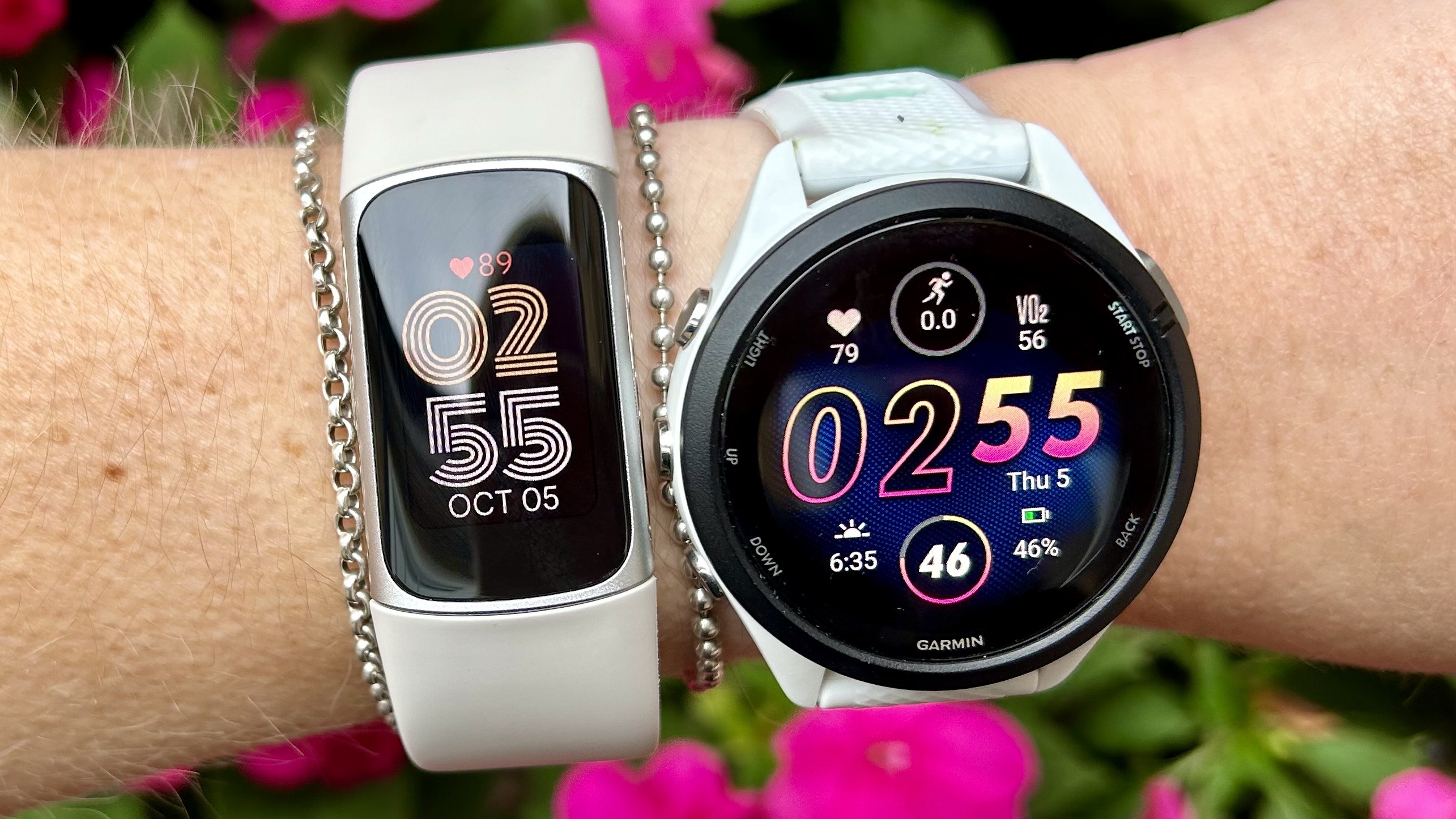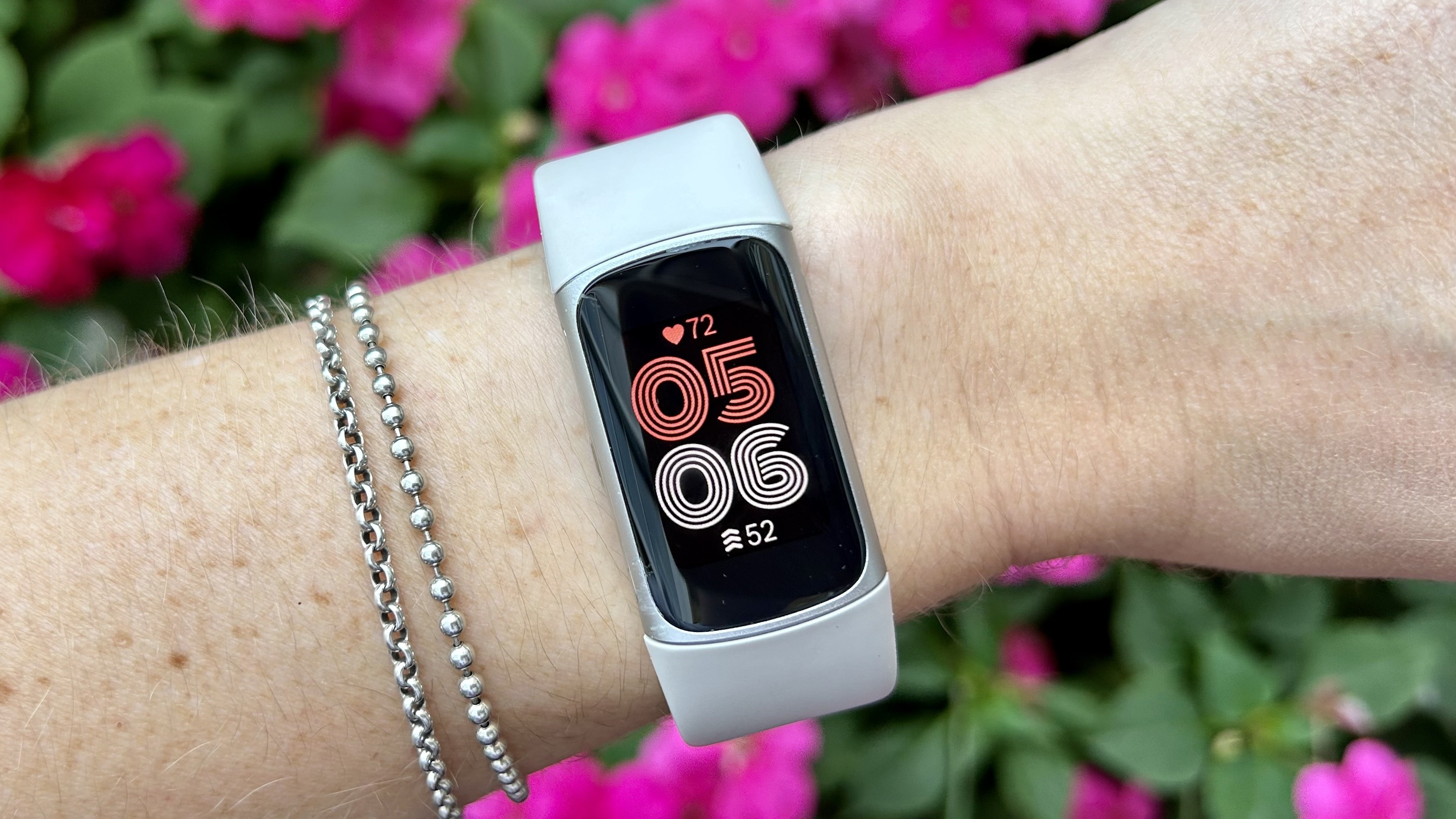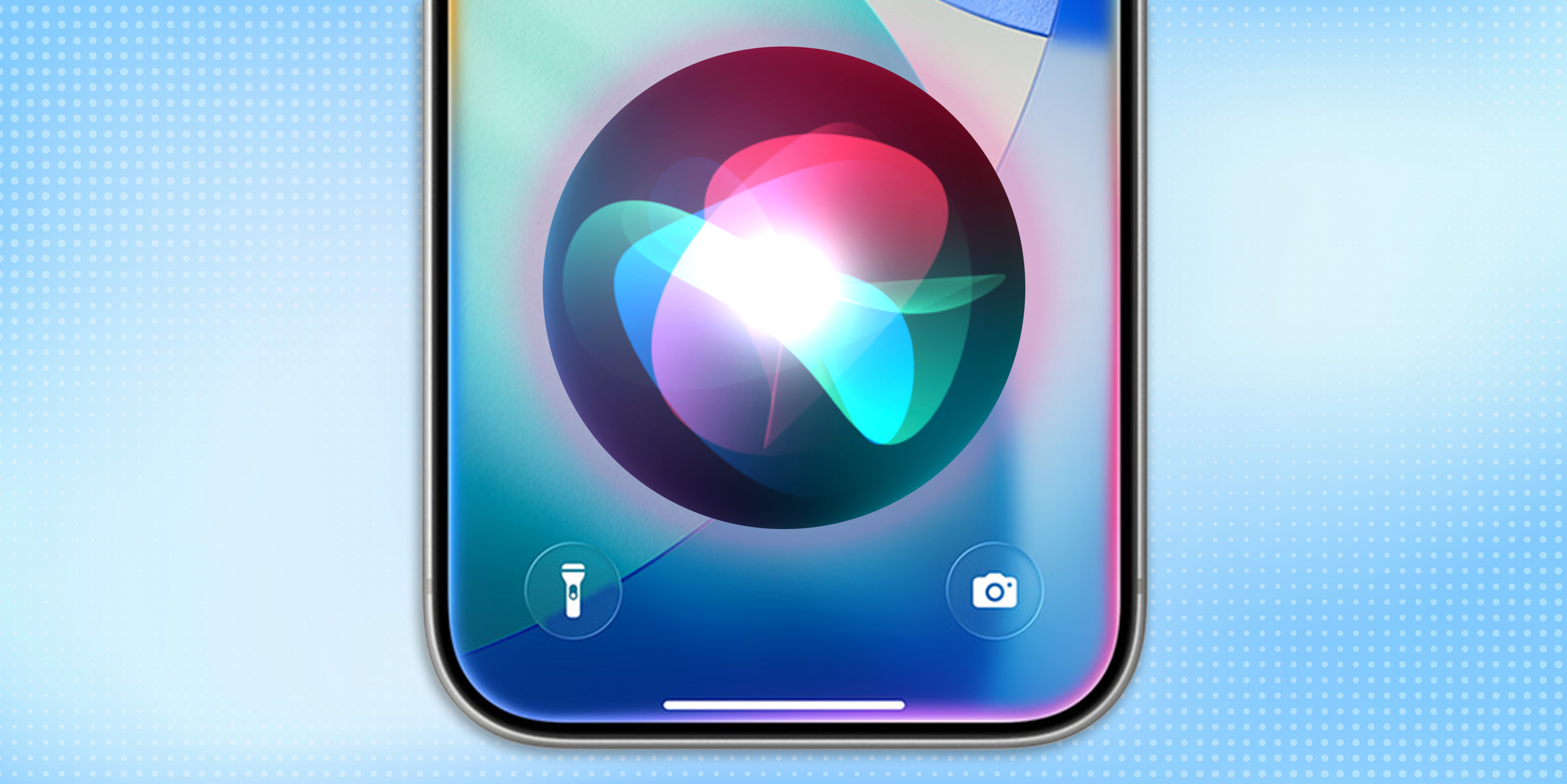Smartwatches vs. fitness trackers — how to choose which is right for you
These two titans of tech wearables both have their pros and cons

Here at Tom’s Guide our expert editors are committed to bringing you the best news, reviews and guides to help you stay informed and ahead of the curve!
You are now subscribed
Your newsletter sign-up was successful
Want to add more newsletters?

Daily (Mon-Sun)
Tom's Guide Daily
Sign up to get the latest updates on all of your favorite content! From cutting-edge tech news and the hottest streaming buzz to unbeatable deals on the best products and in-depth reviews, we’ve got you covered.

Weekly on Thursday
Tom's AI Guide
Be AI savvy with your weekly newsletter summing up all the biggest AI news you need to know. Plus, analysis from our AI editor and tips on how to use the latest AI tools!

Weekly on Friday
Tom's iGuide
Unlock the vast world of Apple news straight to your inbox. With coverage on everything from exciting product launches to essential software updates, this is your go-to source for the latest updates on all the best Apple content.

Weekly on Monday
Tom's Streaming Guide
Our weekly newsletter is expertly crafted to immerse you in the world of streaming. Stay updated on the latest releases and our top recommendations across your favorite streaming platforms.
Join the club
Get full access to premium articles, exclusive features and a growing list of member rewards.
Deciding between a smartwatch and a fitness tracker is tricky business. Nearly all smartwatches these days provide health and fitness metrics, while many fitness trackers can run third-party apps, receive texts, and more. This is to say, the line between the two is blurrier than ever. So, let’s clear things up a bit.
Generally speaking, the best smartwatch models are more technology-packed with smart features and communication apps than the best fitness trackers. Think of them as a complementary device to your smartphone — models like the Apple Watch 10 and the Samsung Galaxy Watch 7 can do many of the same tasks their smartphone counterparts can.
Fitness trackers, on the other hand, are more dedicated to, you guessed it, keeping tabs on our workouts and well-being, though many offer features beyond that. Some can even pay for your Starbucks. They also tend to be smaller, lighter and more affordable than smartwatches.
With that covered, let’s address some common use cases.
My budget is $100
If you’re shopping on a budget, we’d recommend opting for a quality fitness tracker over a subpar smartwatch. Popular trackers like the Fitbit Inspire 3 offer great bang for the buck for about a Benjamin.
Another option is the Amazfit Active 2, which offers a smattering of useful smart features, tons of fitness tracking and health monitoring tools, and plays nicely with both Androids and iPhones (similar to the Fitbit above).
That said, if your heart is set on a smartwatch around this price point, we suggest you keep your eyes out for deals on well-reviewed models. Some of the best cheap smartwatches are frequently discounted.
Get instant access to breaking news, the hottest reviews, great deals and helpful tips.
The Apple Watch SE (2022), for instance, starts at $249 but is often on sale for between $50 and $100 off. For Android folks, consider the one-generation-out Samsung Galaxy Watch 6 or Galaxy Watch FE which starts at $199.
I want to send and receive calls
While plenty of fitness trackers can receive messages and call notifications, for the best wrist-based calling and texting experience, you’ll probably want a smartwatch.
For total independence from your smartphone, consider a cellular-capable model and a data plan. All of the best Apple Watch models and most of the best smartwatches for Android support LTE connectivity. Most smartwatch data plans cost between $10 and $20 a month depending on location and carrier.
Those who want to install an array of third-party apps and/or browse the Internet should also choose a smartwatch. Fitness trackers are simply not built for these tasks.
Tracking my workouts matters most
This one is a tie. With fitness-focused brands like Fitbit and Garmin now in the smartwatch game, and vice versa, you’ll find excellent workout tracking features in both styles of device. Sensors for tracking pulse, blood oxygen saturation, minutes active, distance and more, come standard in nearly all modern wrist wearables. But for the most straightforward fitness monitoring, go with a tracker.
I want something discreet yet capable

Not everyone finds tech wearable fashionable. If discretion is key, a fitness tracker will be your best bet. Models like the Fitbit Inspire series look more like bracelets than geeky gadgets at a glance. And some fitness trackers, like the Garmin Lily Active 2, are actually pretty stylish-looking.
I want to track my sleep & recovery
The best devices for tracking sleep and workout recovery tend to be fitness trackers, like the screen-less Whoop 4.0 or even the Oura Ring 4, the best smart ring on the market today.
However, the best Garmin watches also offer fantastic rest and recovery metrics, as do the best Fitbits. For insights just into sleep, though, we recommend sticking with a tracker, as they tend to be smaller, lighter and more comfortable to wear to bed.
I want features that will keep me safe
If safety is a top priority, a smartwatch is a better bet than a fitness tracker. Flagship models, like the Apple Watch Ultra 2, Samsung Galaxy Watch 7, Google Pixel Watch 3 and many more offer fall detection, which can be a lifesaver when no one else is around. The Apple Ultra series also has a built-in siren that can be used to signal for help. Most smartwatches also offer an emergency calling function.
The Google Pixel Watch 3 also features a first-of-its-kind Loss of Pulse detection feature. Additionally, many of the best smartwatch models can be setup to monitor for health anomalies like sleep apnea and Afib.
I’m still not sure which device to get
For those still stuck in the middle, fear not. There are plenty of cross-over devices that straddle the line between fitness tracker and smartwatch. The Fitbit Charge 6, for example, sports a decent-sized screen and onboard GPS, with support for Google apps and mobile payments.
Other models, like the Garmin Forerunner 265, combine best-in-class training and wellness features with sensible smart functions like the ability to make payments, music storage for offline listening and mirrored smartphone notifications with wrist-based text replies for Android folks.
More from Tom's Guide
- Smartwatch water resistance ratings explained
- Apple Watch Ultra 3: All the rumors you need to know
- I put the Apple Watch SE vs Amazfit Active 2 through a 7-round face-off — here's the winner

Dan Bracaglia is the Tom’s Guide editorial lead for all things smartwatches, fitness trackers and outdoor gear. With 15 years of experience as a consumer technology journalist testing everything from Oura Rings to instant cameras, Dan is deeply passionate about helping readers save money and make informed purchasing decisions. In the past year alone, Dan has assessed major product releases from the likes of Apple, Garmin, Google, Samsung, Polar and many others.
An avid outdoor adventurer, Dan is based in the U.S. Pacific Northwest where he takes advantage of the beautiful surroundings every chance he gets. A lover of kayaking, hiking, swimming, biking, snowboarding and exploring, he also makes every effort to combine his day job with his passions. When not assessing the sleep tracking and heart rate accuracy of the latest tach gadgets, you can find him photographing Seattle’s vibrant underground music community.
You must confirm your public display name before commenting
Please logout and then login again, you will then be prompted to enter your display name.
 Club Benefits
Club Benefits










